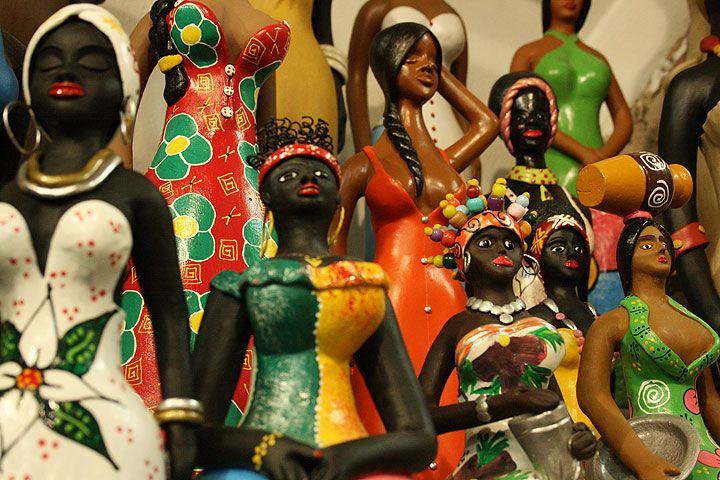Salvador: African Roots

Considering that Brazil colonization and slavery begun in Bahia, the state has the largest concentration of Afro-Brazilians - 80%. You can just imagine from that, how much of the African influence is deeply concentrated into the Bahia culture (traditions, religion, food, music, language, etc); and the result is in the arts, in the rhythm of the drums, into the spiciness of the food, and into people movement and simple happiness!
Today, we’re going to give you a little taste of all that. Pelourinho – Historical center of Salvador, and a symbol of the black movement in Bahia – is the neighborhood that will show us lots of African roots.
Stop at Afro-Brazilian Museum, housed in the old Faculty of Medicine (Terreiro de Jesus). On the ground floor are four sections devoted to Negro cultures (e.g. the capoeira, the martial dance developed by the black slaves).
Stop at Protetora dos desvalidos Society – founded in 1832 to help the desvalidos (Black people abandoned by their dominators for not being useful anymore), this society played a great role promoting the slavery abolition, these days, it develops works within the community.
Stop at Our Lady of the Rosary of Black People Church – Is the only church of the Brazilian Black people; As slaves could not attend the same churches as the whites, they saved money to build their own temple - Rosary of the Blacks.
Stop at Casa do Benin – A museum with 200 objects and arts from the Benin Gulf, West Africa, where came from most of the slavers arrived in Brazil.
Meet: At the front desk of your hotel in Salvador.
A Mon to Fri experience.